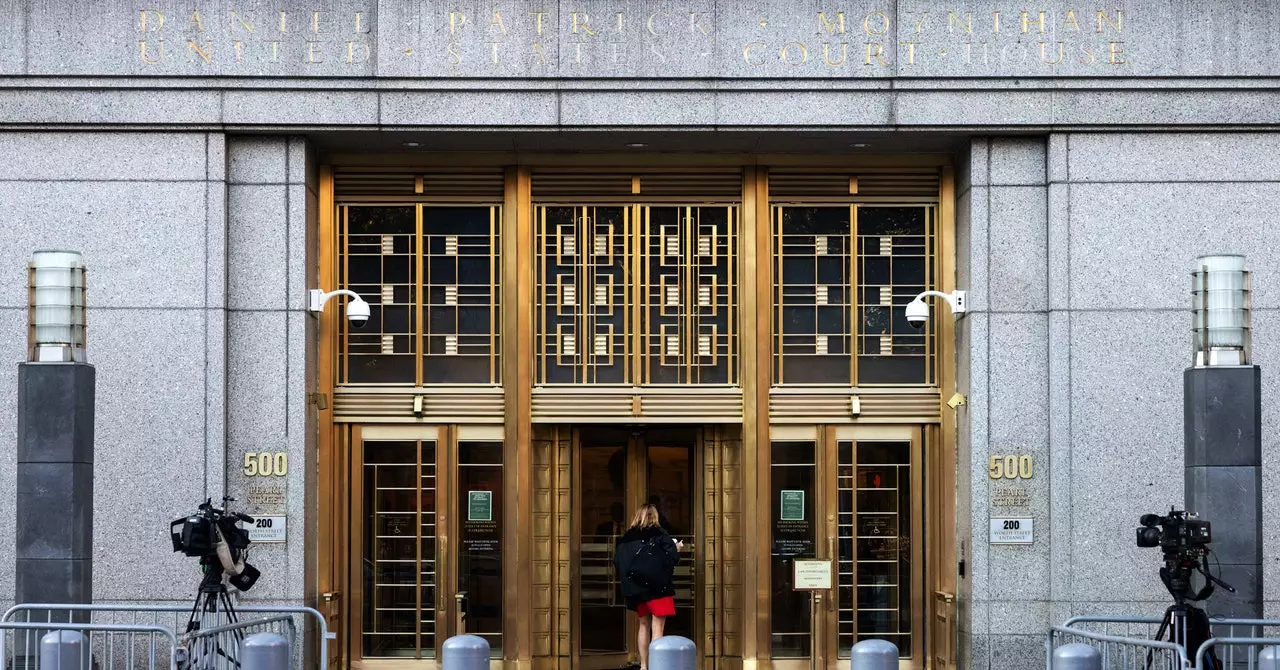The recent legal developments surrounding the collapse of the cryptocurrency exchange FTX have captured significant attention within both the financial and legal sectors. In a landmark ruling, a U.S. judge has authorized the distribution of billions of dollars to former customers who were adversely affected by the exchange’s sudden bankruptcy in late 2022. This decision not only sheds light on the complexities of cryptocurrency regulations but also reflects broader challenges associated with bankruptcy proceedings in the evolving digital asset landscape.
FTX’s meteoric rise and subsequent fall serve as a reminder of the inherent volatility associated with the cryptocurrency industry. Founded by Sam Bankman-Fried, FTX filed for bankruptcy amid revelations that billions in customer deposits had vanished, allegedly misappropriated for personal and speculative ventures. The case epitomizes a growing pattern of misconduct in financial markets, underscoring the need for stringent regulatory frameworks to safeguard consumer assets.
The judge presiding over the proceedings, John Dorsey, has characterized the FTX bankruptcy as a “model case” for navigating complex Chapter 11 reorganizations. His approval of the reorganization plan marks a significant milestone in the recovery effort for those who placed their trust in FTX. The legal and financial maneuvers enacted throughout this process demonstrate the multifaceted nature of corporate bankruptcy, especially when it involves cutting-edge financial products like cryptocurrency.
Typically, creditors in Chapter 11 cases suffer significant losses, often receiving mere cents on the dollar in repayment. However, the unique circumstances surrounding FTX’s bankruptcy have allowed for a surprisingly optimistic outcome. The proactive measures taken by the FTX estate’s administrators—particularly the liquidation of assets held by FTX Ventures and Alameda Research—have facilitated the recovery of billions of dollars that could ultimately be returned to customers.
The plan emphasizes a full refund to creditors, including interest, overshadowing the traditional expectations of creditor recovery processes. According to Yesha Yadav, a bankruptcy expert, securing any recovery above 100 percent is almost unheard of in these scenarios. This development not only raises questions about the success of the FTX recovery plan but also highlights the favorable market conditions, as cryptocurrency values have surged since the bankruptcy filing.
Despite the optimistic narrative surrounding the recovery efforts, not all stakeholders are satisfied with how their claims have been valued. Many customers who held crypto assets on the FTX platform are perturbed by the method of “dollarization” employed in determining the value of their claims. Rather than adjusting the amounts owed based on the current market value of cryptocurrencies, claims have instead been calculated based on the value at the time of the FTX collapse. During this period, the cryptocurrency market was struggling, leading to potentially significant discrepancies in what creditors believe they should be entitled to receive.
Yadav critiques this method, arguing that it minimizes the actual recovery potential that could have been realized if customer claims were aligned with current crypto valuations. As prices have rebounded dramatically since the low points of 2022, many creditors feel they have been shortchanged due to the rigid application of dollarization. This contentious aspect of the case raises broader questions about the fairness and adequacy of bankruptcy laws as they relate to digital assets.
The FTX bankruptcy saga is far from over, but it stands as a pivotal case that could shape future regulatory and institutional standards for cryptocurrency exchanges. In a rapidly evolving financial landscape, the importance of transparency, customer protection, and comprehensive risk management cannot be overstated. The lessons gleaned from FTX’s failures and the subsequent recovery efforts will likely prompt regulators worldwide to reconsider the adequacy of existing frameworks, ensuring the protection of consumers in an increasingly digital economy.
As the final resolution unfolds, the FTX case will undoubtedly remain a significant chapter in the history of cryptocurrency, illuminating both the potential and pitfalls of this groundbreaking financial frontier.

